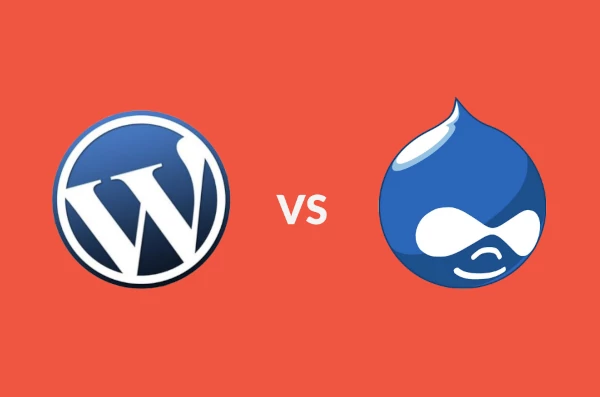Back to blog
Wordpress vs Drupal

We get asked by our clients all the time about whether they should use Wordpress or Drupal for their redesign projects. Our answer often surprises them.
You've probably heard an adage like "Wordpress is easier to use" or "Drupal is more robust" and while these statements are true to a certain extend, they're missing the larger point of the comparison. Both frameworks are capable of creating ambitious web experiences and the variability between the delivered sites can be almost as great within the same framework as it is across these categories.
Similarities
Both Wordpress and Drupal use the same architecture for building sites. These are often referred to as database-driven applications or traditional CMS's - that's because all of the functionality of the site, as well as the content, are stored in a database. In fact they use the same exact technology (PHP and MySQL) under the hood and use similar processes for constructing pages that are delivered to site visitors. They are also highly customizable, so you wouldn't be able to necessarily discern a custom website built in one technology over the other strictly by looking at the frontend display of the website. For the most part, you can build the same type of application with either technology, the honest truth is development teams typically recommend their specialty.
Differences
The most apparent difference between Wordpress and Drupal is the admin interface that comes out-of-the-box. Although this experience can be customized by your developer, it typically has a default feel that is familiar to folks with experience using that particular technology. Wordpress in general has a simpler architecture, which is sometimes thought of as being more intuitive and less overwhelming. The Wordpress community has put more thought into their editing experience and does a better job showing how edits will appear visually. Drupal on the other hand has more features for creating reports and drawing data relationships between different pieces of content. Drupal also has more advanced deployment tools for developers to manage the code in an enterprise-level environment.
Considerations
Both Wordpress and Drupal are good options for sites with many content editors and varying levels of permissions. For instance if you have a content team making many simultaneous edits to the site at any given time that later need to be reviewed by a manager before being published, you'd be in good hands with either option. However, these benefits are not offered without caveats:
- Both CMS's have high maintenance costs. You should factor in weekly security updates into planning or you risk running a site that is vulnerable to attacks.
- Both have notoriously slow performance. You can mitigate this with advanced caching strategies, but it often requires expensive hosting.
Alternatives
We often use the analogy that comparing Wordpress and Drupal is like comparing running sneakers from two different brands. Some runners optimize for speed, others for distance, but what if what you really need is a pair of flip flops or a combat boot? If you need high-performance, low-maintenance sites, we'd recommend something like Plentico instead. There are tons of other options available that are worth discussing with your web developer.